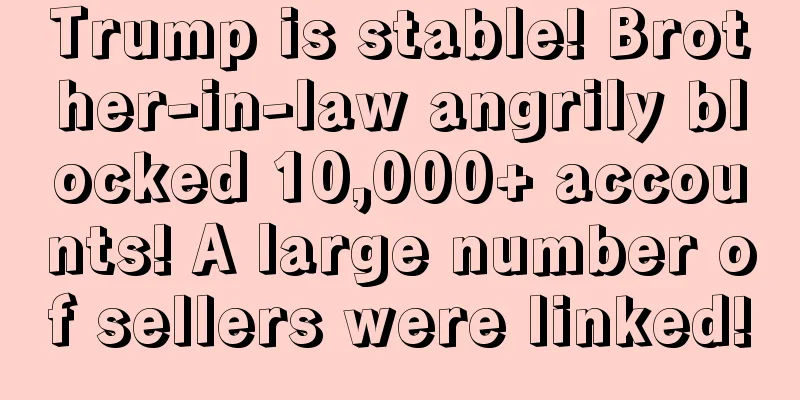Amid the "price reduction and clearance" craze, the more expensive clothing is, the better it sells in the American clothing market?

|
In the midst of the "price reduction and clearance" craze, the American clothing market has become increasingly expensive, and a strange phenomenon has emerged: the more expensive the clothing, the better it sells.
According to the Consumer Price Index released by the U.S. Bureau of Labor Statistics on Wednesday, clothing prices rose 0.8% in June from May and 5.2% year-on-year. Clothing consumption trends are another mixed indicator that economists and industry experts try to use to measure the strength of the U.S. consumer.
In recent weeks, many prominent companies and investors have warned of a U.S. recession, and retailers including Target, Gap and Walmart have announced plans for more markdowns to clear out excess inventory, moves that are expected to lead to deflation.
Yet, at least so far, sales and prices for clothing are exceeding last year’s levels, with consumers paying more to update their wardrobes.
According to market research firm NPD, from January to May, clothing sales in the United States increased by 5% year-on-year, and increased by 13% compared with the same period before the pandemic in 2019. Among them, women's clothing sales increased by 42% year-on-year, 14% higher than before the epidemic.
However, the apparel industry is starting to show some signs of pulling back. As apparel sales rise, unit volumes are down about 8% compared with the same period last year, according to NPD, and a June survey found that about 35% of consumers plan to or are currently buying less apparel.
The decline in unit sales and the increase in sales are not only due to higher prices for clothing products, but also because consumers are more willing to buy higher-priced clothing products. For example, swimwear sales overall declined after surging last year. But this year, the fastest-growing segment is swimwear priced $100 and up. NPD found that swimwear priced under $70 is declining year-over-year.
In addition, Kristen Classi-Zummo, industry analyst for fashion apparel at NPD Group, pointed out that formal wear is becoming popular again with the arrival of wedding season or more time back in the office. When buying these products, some consumers are willing to buy non-discounted goods.
The consumer market is also beginning to diverge. Those with annual incomes of $100,000 or more said they plan or are currently reducing spending on services such as dining and travel, but clothing purchases have not yet been affected. They are still buying at a higher rate, and the luxury market is still hot. Those with lower incomes are more likely to reduce clothing spending.
The consumer shift has forced retailers to use discounts to clear excess inventory of low-priced items, while also scrambling to meet consumer demand for trendier, higher-priced products from apparel brands.
In the midst of the price-cutting craze, retailers also started a "price war". To break the vicious cycle, many retailers began to sell more clothing at full price.
At the same time, clothing retailers have had to pass on more costs, such as rising prices for raw materials used to make clothing or the natural gas needed to transport it, which has pushed up the prices of items such as shirts and dresses.
Editor✎ Ashley/ Disclaimer: This article is copyrighted and may not be reproduced without permission. |
<<: Shopify downloads fell 25% in Q2! Less than Shein, Amazon and Walmart!
Recommend
What is UberZon Club? UberZon Club Review
UberZon Club is an exclusive private group that pr...
Monthly sales of 8,000+! Any operation method is inferior to low prices? After 100 days of launch, it directly rushed to the first place in BS and 35th in the major category, and the natural flow was pulled to the limit...
Anonymous user My C position The product is a 9-in...
New features added? Amazon's dark horse site is about to take off
The Japanese site’s performance on Prime Day this...
Mobile commerce in the U.S. is worth $280 billion and is expected to account for 53% of online sales during the holiday season!
It is learned that on August 21, according to fore...
What is COZMOX? COZMOX Review
COZMOX is a global digital content marketing platf...
State Council: Small and medium-sized enterprises are exempted from three social insurance taxes for five months
The social security issue that small and medium-si...
What is Amazon Brand Gating? Amazon Brand Gating Review
Amazon Brand Gating is the most effective way to p...
Counterfeit products are rampant! Multiple federal agencies in the United States are stepping up supervision!
It is learned that according to foreign media repo...
Canadian e-commerce platform Le Panier Bleu announced that it would cease operations!
It is learned that according to foreign media repo...
Bed Bath & Beyond went bankrupt and was unable to repay its suppliers, causing dissatisfaction among suppliers!
When Bed Bath & Beyond filed for bankruptcy l...
Biden meets with CEOs of Walmart, UPS, FedEx and others to discuss supply chain bottlenecks!
It is learned that according to foreign media repo...
What is decoratorsbest? decoratorsbest review
decoratorsbest is an excellent e- commerce company...
What is Paidy? Paidy Review
Paidy is an Internet financial technology company ...
Teach you how to optimize keywords step by step (there are benefits at the end of the article)
What I want to share with you this time is the key...
What is the Amazon Tax Exempt Program (ATEP)? Amazon Tax Exempt Program (ATEP) Review
Amazon Tax Exemption Program (ATEP) was launched i...









